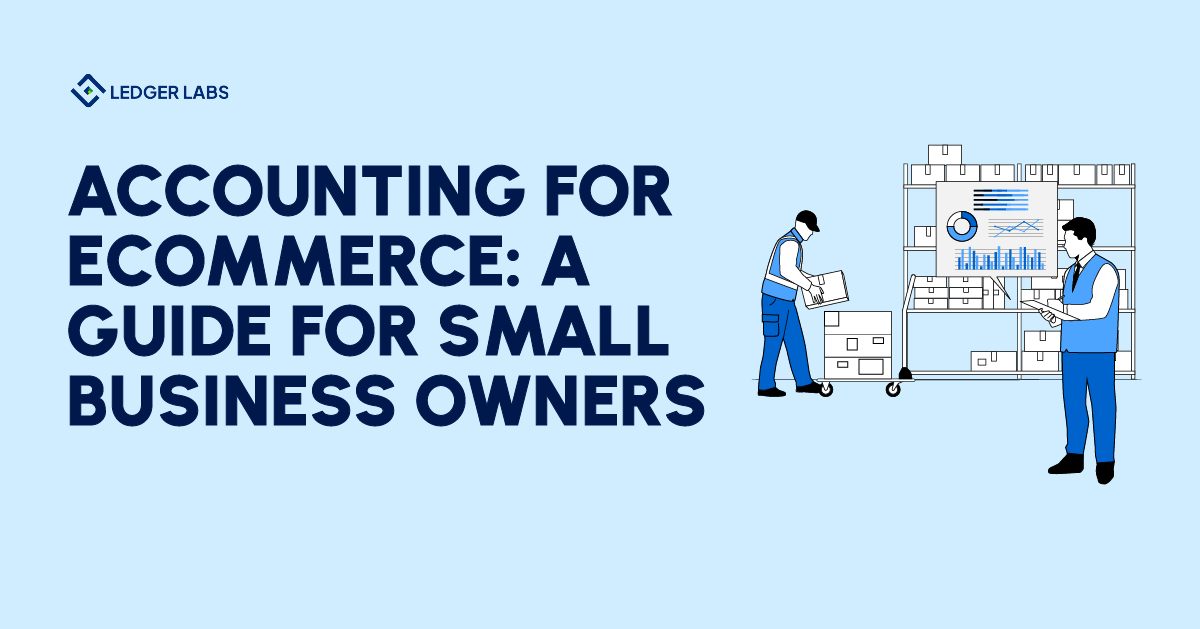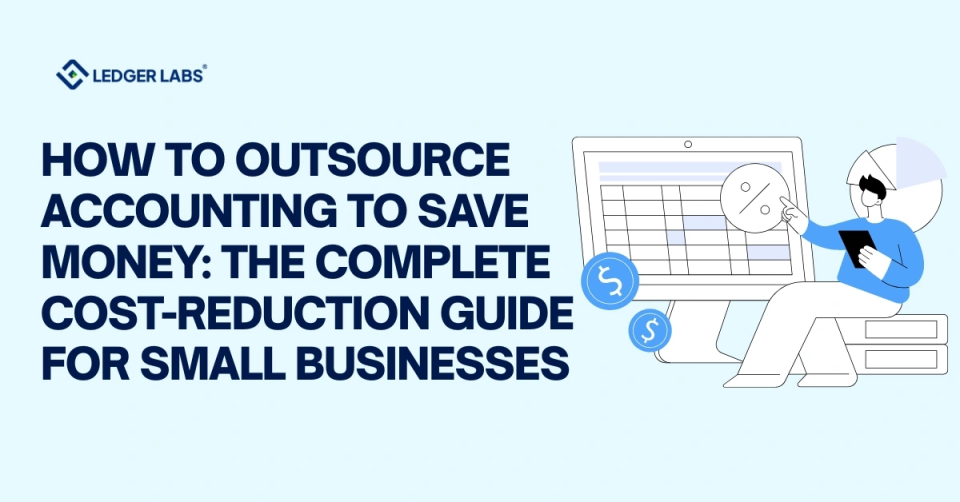The purpose of accurate accounting & bookkeeping is undeniable, especially in e-commerce and retail.
It’s almost a necessity to have accurate books, especially in a business like e-commerce, where transactions are frequent and of different types.
But how exactly can accounting for ecommerce keep the financial health of your company intact?
Also, how can it help you make proper decisions based on your current revenue?
Well, of course, you can take charge of your accounting needs by yourself.
At the same time, you can also hire a professional e-commerce accounting service.
In both cases, however, you still need to get an in-depth perspective of e-commerce accounting, something which I will help you understand. Alternatively, entrepreneurs seeking to accelerate their business journey might consider the option to buy a company—acquiring existing operations and accounting systems can streamline setup and support financial clarity from day one
Let’s get started.
- E-commerce accounting is essential for businesses as it helps maintain financial accuracy, fostering informed decision-making.
- Use accounting software to automate tasks and improve efficiency.
- Track cash flow and maintain up-to-date financial records for financial transparency.
- There are two methods for accounting, cash-basis and accrual accounting. Choose the method that suits your business.
The 101s of Ecommerce Accounting
Let’s start with a basic recap.
Ecommerce accounting is a process of tracking, recording, organizing, and reporting all the business transactions relevant to your online store.
You can easily look at it as a way of managing your business finances and optimizing your financial health.
Irrespective of whether you do your own accounting or have outsourced it to a professional, your key bookkeeping tasks should include:
- Categorized transactions
- Detailed invoicing
- Payroll management
- Account reconciliation
- Detailed balance sheet
- Account payables and receivables management
Proper accounting of your business allows you to gather insights about your sales, expenses, tax, and inventory data – ultimately allowing you to make better decisions ahead.
The Responsibilities of an E-Commerce Accountant
Before you outsource an e-commerce accountant, you need to understand what to expect of them and what responsibilities to assign them.
41% of businesses manage their business finances themselves.
At the same time, almost 30% have hired a professional to handle this responsibility, further establishing how important delegation becomes once the books become too complicated.
Here’s what an e-commerce accountant is supposed to do for your business:
1. Tax Compliance
While most business owners handle basic accounting on their own, they often struggle with tax management.
It is a serious aspect of e-commerce accounting that many businesses delay till the last minute.
Tax management includes tracking federal, state, and local taxes, their calculation, and timely submission.
The IRS can subject you to scrutiny for filing inaccurate tax returns or interpreting incorrect tax codes.
Therefore, it is absolutely critical that you abide by the general guidelines and file your quarterly and year-end tax returns on time.
Because tax planning and its preparation can be overwhelming, many small businesses opt for accounting services, either hiring a full-time accountant or outsourcing their accounting.
What makes tax management difficult is the fact that every state has different rules.
An accountant with the right expertise can help you navigate through the stressful tax season.
2. Bookkeeping and Accounting
Bookkeeping is the process of tracking and categorizing your financial transactions. It helps in streamlining your business operations.
Some of the key responsibilities of bookkeeping include:
- Reconciliations
- Tracking cash flow
- Categorizing payments
- Payroll management
- Managing accounts payable and receivable
- Preparing invoices and bills
Accounting, on the other hand, is the process of analyzing your financial records.
An accountant will extract reports from this data and use it to forecast and budget.
This practice gives you a holistic view of your company’s financial position. Some of the tasks that an accountant does include:
- Auditing financial data
- Tax planning and preparation
- Financial forecasting
- Risk analysis
- Preparation of financial reports
Bookkeeping and accounting equip you with information to make financially sound decisions.
Even though DIY accounting is doable for business owners, you’d rather want to save your time and energy for other purposes while outsourcing the same to a professional who has been doing it for a long time.
3. Financial Reporting & Growth Analysis
Ecommerce accounting has a purpose – it helps you strategize and reach your goals effectively. By gathering all the data you can judge various aspects of your business.
- Your best-selling products and services
- The trajectory of your business profit over time
- Your liabilities
- Business opportunities
- Your biggest expenses
Financial information helps in setting goals.
You can decide the budget for marketing campaigns, explore investment opportunities, and strategically plan the expected return on investments to plan the next business move.
If you’re planning to scale your business, it’s better to start understanding your numbers too.
And only an accountant can help you with that. Additionally, they can provide you with cost-saving solutions and extensive risk analysis.
Understanding Your Business’s Accounting Activities
There are certain metrics that are used to categorize and monitor your company data.
Let’s expand on that.
Cash flow: Cash flow is the money that comes in and out of your business, revealing your liquidity and the buying power of your business. While positive cash flow indicates a healthy financial situation, a constant negative cash flow could also mean that certain things in your business probably require a change.
Gross Profit: Gross profit refers to the profitability of your core business activities minus tax implications and miscellaneous operating costs. You can measure the gross profit of your business by subtracting the total revenue collected from sales from the cost of goods sold.
Gross profit = Net sales − CoGS
Profit and Loss: Your business profits when its revenue exceeds the total cost of goods sold. It experiences a loss when the cost of goods sold trumps the sales revenue. Your business is profitable as long as its earnings are more than its total expenditure. Both aspects are crucial in determining the overall financial position of your business.
Balance Sheet: The balance sheet is one of the most important financial statements in your business. It gives you a summary of your company’s assets, liabilities, and equity shares.
- Your assets reflect what your company owns. So, it includes all the cash, equipment, inventory, property, etc.
- Liability is essentially what your business owes others, so it will include the loans and any other payable amount.
- Equity is what the shareholders own after deducting all possible liabilities.
Gross Margins: Gross margin is the difference between the revenue and the cost of goods sold. The number helps you evaluate your business profitability and overall pricing strategy. The higher the gross margin, the wider your profit margin.
Important Accounting Methods That You Should Know Of
Implementing a proper accounting system, especially software-based one, eliminates human errors, facilitating efficiency and accounting accuracies.
There are two types of accounting methods.
1. Cash-Based Accounting
Cash-based accounting records your financial transactions once you’ve received or paid the cash.
This type of accounting reflects the income you get and the expenses you pay for. The system is straightforward, allowing you to track your cash flow.
This accounting system can be limiting as it doesn’t reflect the money you owe or what others owe you, making it ideal only for small startups, dropshipping operations, product-on-demand stores, and Amazon FBA stores.
However, cash-based accounting doesn’t show the account receivables or account payables. Therefore, it’s best to avoid this accounting system if:
- You deal with high stock levels and multiple vendors
- You plan to secure a loan or get an investor on board
- Wish to audit your financial statement
2. Accrual Accounting
Accrual accounting, on the surface, looks more complicated than cash-based accounting.
However, as your business grows, you will be compelled to adopt this accounting method.
Accrual accounting is concerned with the recording of financial transactions regardless of cash exchange.
This allows you to recognize the revenue as soon as it’s made, even before you have the money in your hands.
An important feature of accrual accounting is that it’s often relatively close to traditional accounting – one of the main reasons being that it’s the system that most financial institutions use.
Accrual accounting provides a holistic view of your financial health, enabling you to set realistic financial goals.
A Few Best Practices For Your E-Commerce Accounting
Whether it’s your first time starting an e-commerce business or you’re a seasoned player in the industry, I have a few important ecommerce accounting practices that you can follow:
1. Automate Processes
Accounting software have been around for a while.
And they have evolved quite a bit.
You can now monitor your sales revenue, the cost of goods sold, calculate tax, and even send and receive invoices to your customers and vendors.
Imagine doing all these things manually and how time-consuming it would be to do it right.
By using reliable ecommerce accounting software, you can automate all of these processes to save time and reduce the chances of human error.
2. Reconcile Regularly
Spotting a problem before it can translate into a bigger problem could save you time, energy, and money.
One of the best practices of e-commerce accounting is to keep matching your transactions and financial activities to the supporting documentation.
Reconciliation is one of the best practices to compare your financial records with bank statements to ensure coherence and consistency in information.
3. Make Bookkeeping A Top Priority
Regularly update your books for financial clarity and efficiency.
You can do that by recording all financial transactions, such as the daily sales, income, and expenditure, empowering yourself to make informed decisions based on your current financial situation.
4. Track Inventory
Managing your inventory means knowing how much stock you have, and which items are popular, and which aren’t.
Knowing inventory levels highlights how much inventory you have left and how much you need to restock.
5. Understand Sales Tax
Understanding sales tax can be complicated for e-commerce businesses selling in different countries and states.
You have to understand the requirements and take steps accordingly because one wrong calculation can lead to major financial losses.
Ecommerce Accounting With Ledger Labs
While business owners can rely on DIY accounting or even establish an in-house accounting department, one of the best ways to streamline your finances is by partnering with a professional accounting team.
Not just that but also a team that leverages AI-based accounting software for the benefit of your business.
Ledger Labs has 12+ years of experience in e-commerce accounting.
My team understands the requirements and can handle your accounting, regardless of your business size and structure.
Book an appointment with us to help you optimize the financial health of your business.











